It’s easy to confuse the Democratic Republic of the Congo (DRC) with the Republic of the Congo.
They’re neighbors separated by the Congo River, and their capitals, Kinshasa and Brazzaville, sit directly across from each other.
But they’re two distinct countries with different colonial histories and political landscapes.
This article focuses on the Democratic Republic of the Congo, the much larger and more complex of the two.
Located in the heart of Central Africa, the DRC is one of the continent’s most resource-rich nations, with dense rainforests, vast river systems, and mineral deposits that power the global tech industry.
It was once known as Zaire, and before that, it was brutally exploited under Belgian colonial rule.
Today, the DRC continues to face widespread poverty and ongoing conflict, especially in the east, which has made large-scale tourism difficult.
The most recent estimates, from 2018, suggest the country receives fewer than 700,000 visitors per year.
But there’s another side to the DRC.
It’s home to Virunga National Park, where travelers can track endangered mountain gorillas and hike active volcanoes.
The Congo River offers once-in-a-lifetime journeys through untouched ecosystems.
The culture is vibrant, the landscapes are vast, and the wildlife is rare.
If security improves and infrastructure expands, the DRC has the potential to become one of Africa’s most compelling adventure destinations.
Warnings & Dangers in Democratic Republic of the Congo

OVERALL RISK: HIGH
The DRC is a high-risk destination due to political instability, ongoing conflicts in the east, and weak infrastructure. Most governments advise against non-essential travel to large parts of the country. That said, certain areas like Kinshasa or Virunga National Park can be visited safely with proper planning and a local guide.

TRANSPORT & TAXIS RISK: HIGH
High risk. Roads are often poorly maintained, especially outside of major cities. Public transportation is unreliable and often unsafe. In cities, taxis don’t always operate under official systems. Use trusted drivers or arrange transport through hotels or tour companies. Domestic flights may be necessary for long-distance travel, but not all airlines meet international safety standards.

PICKPOCKETS RISK: HIGH
This is a high risk as pickpocketing and other crimes of opportunity are one of the most common risks for travelers. Given how poverty-stricken the country is, there's no sign that these crimes will improve anytime soon.

NATURAL DISASTERS RISK: HIGH
The DRC sees seasonal flooding and is in a volcanic zone, with Mount Nyiragongo near Goma being the most active and dangerous. Earthquakes are rare but possible. Most natural disasters are localized, but if you're in an affected area, infrastructure and emergency response are limited.

MUGGING RISK: HIGH
One of the reasons the elevated risk levels were put in place by some governments is the increase in violent crime. That's why we give this a high risk, too. Don't go out after dark to lower your risk.

TERRORISM RISK: HIGH
The traditional idea of international terrorism is low, but the conflicts, fighting, and lawlessness of the DRC should prompt a high risk. Even though tourists are not always the target in these armed attacks, there's little concern for your safety if you're in the wrong place at the wrong time.

SCAMS RISK: HIGH
Tourists may be targeted with inflated prices or fake fees, especially at checkpoints or airports. Police corruption is a known issue. Always ask for official identification, and don’t hand over your passport unless required. Using trusted contacts and organized tours can reduce the chances of being scammed. At the same time, you have to treat this as a high risk.

WOMEN TRAVELERS RISK: HIGH
High risk in rural or conflict-affected areas, where gender-based violence is a concern. In cities, solo travel is more manageable but still requires caution. Modest dress and cultural awareness are recommended. Many women visit with guides or groups, which improves safety and navigation of social norms.

TAP WATER RISK: HIGH
Tap water is generally unsafe to drink throughout the DRC. Water treatment infrastructure is unreliable, and contamination is common. Stick to bottled or filtered water even when brushing your teeth.
Safest Places to Visit in Democratic Republic of the Congo
You know a country isn’t very safe when an official tourism website doesn’t exist.
Your best bet is to check with your embassy for guidance on places to visit.
That said, there likely isn’t an embassy that will suggest a visit to the DRC is a good idea.
If the DRC ever gets safer and tourism becomes a priority, you might want to put these places on your bucket list.
Virunga National Park is the most famous and accessible destination, especially with guided tours.
It’s home to endangered mountain gorillas, active volcanoes like Mount Nyiragongo, and deep biodiversity.
Visiting here requires caution and coordination with the park’s official rangers, but it offers a rare experience you won’t find elsewhere.
Garamba National Park in the northeast is a UNESCO World Heritage Site, known for its elephants and rare wildlife.
Political instability has impacted conservation here.
Kahuzi-Biega National Park near Bukavu is one of the few places in the world where you can see eastern lowland gorillas in the wild.
Guided treks offer up-close encounters, though conditions vary depending on the security situation.
In the capital, Kinshasa, you can explore street art, markets, and the Congo River waterfront.
The Lola ya Bonobo Sanctuary, just outside the city, rescues orphaned bonobos and welcomes visitors with a conservation mission.
If tourism infrastructure ever stabilizes, the DRC could be one of the most awe-inspiring places on the continent.
However, it’s worth noting that the Republic of the Congo, across the river, only has a Level 2 risk level from most Western government advisories.
Places to Avoid in Democratic Republic of the Congo
The DRC is currently under a Level 4 “Do Not Travel” advisory from most Western governments, including the U.S. State Department.
Even in areas considered “safer,” like Kinshasa or Goma, the guidance is to avoid all but essential travel.
The risk isn’t limited to one region.
It’s widespread, unpredictable, and includes everything from armed conflict to violent crime and infrastructure failure.
Eastern DRC remains the most volatile part of the country.
Over 120 armed groups operate in provinces like North Kivu, South Kivu, Ituri, and Tanganyika.
North Kivu and Ituri have been under a formal military siege since 2021.
Areas around Virunga National Park, Rutshuru, and the tri-border zone near Uganda and Rwanda are extremely dangerous.
Other provinces with persistent violence include Maniema, Bas-Uélé, Haut-Uélé, and Haut-Lomami, where militia activity and banditry continue.
The border areas near South Sudan, CAR, and Uganda, including Garamba National Park, are also high-risk zones due to rebel violence.
Entry points near Burundi and Rwanda are unstable and may close without notice.
In Kinshasa, stay in the Gombe district if you go at all.
Safety Tips for Traveling to Democratic Republic of the Congo
- Police presence in the DRC is minimal outside major cities like Kinshasa. There’s no dedicated tourism police, and calling for help can be unreliable. If you need law enforcement, contact your hotel or embassy first. Locals may be helpful, but formal response times and effectiveness vary drastically by location.
- The DRC doesn’t have a formal public alert system for natural disasters or civil unrest. Sign up for your home country’s travel alerts (like STEP for U.S. citizens) and check with your embassy on the ground. Local news and expat groups on WhatsApp or Facebook are often faster sources of real-time updates. At the same time, advanced technology could be taken from you at immigration due to security concerns.
- Traveling by road in remote or eastern parts of the DRC is high-risk. If you must drive, go in a convoy of at least two vehicles, and carry GPS and satellite phones. Armed ambushes and kidnappings are common. Avoid nighttime travel, never leave major highways, and always pull off the road for motorcades.
- French is the official language, and most government or urban contacts will speak it. English is rare, and in rural areas, you may encounter only local languages like Lingala or Swahili. A local guide or interpreter is almost essential unless you’re fluent in French or already familiar with regional dialects.
- Yellow fever vaccination is required for entry. Malaria is widespread, and typhoid, cholera, and hepatitis are common. HIV remains prevalent. Bring a full travel health kit, take antimalarials, and use standard precautions, including safe sex practices. Medical facilities are limited, so you’ll need to be largely self-reliant.
- Even humanitarian workers are not immune to targeting. In some regions, they’ve been kidnapped, harassed, or attacked. If you’re planning aid work, go through a vetted organization with strong local security protocols. Being affiliated with an NGO doesn’t guarantee protection and may even increase your visibility in conflict zones.
- Never photograph people without their permission, especially security forces, military sites, or checkpoints. Even casual shots can be misinterpreted and land you in trouble. Some locals may agree for a small fee, while others may take offense. Always ask first, and keep your phone or camera use low-key.
- Same-sex relationships aren’t technically illegal in the DRC, but public displays of affection can be prosecuted under indecency laws. Social attitudes are conservative, and harassment, including by authorities, is not uncommon. Travelers should avoid any public expressions of same-sex affection and remain aware of cultural norms around gender and sexuality.
- Air pollution in cities like Kinshasa can get bad, especially in the dry season from May to October. If you have asthma or respiratory conditions, talk to your doctor before traveling. Bring any needed medications and a mask if you’re sensitive to dust or smog. Conditions vary widely by region.
- Electricity, internet, and mobile networks can be cut out without warning, especially outside Kinshasa. This could impact your ability to travel throughout the region or even use basic services. Local authorities can impose curfews or restrict movement during unrest, and you’ll need to follow the rules.
So... How Safe Is Democratic Republic of the Congo Really?
It’s not safe at all.
All major countries that provide travel advisories list the DRC as a Level 4: Do Not Travel.
That’s the highest risk level possible.
This isn’t one of those warnings where it’s just about pickpockets or protests.
We’re talking about active conflict zones, kidnapping risk, armed robbery, and regions under military siege.
Even the so-called “safer” places are listed as avoid all but essential travel.
Infrastructure is weak, emergency services are minimal, and communication can go dark without warning.
Yes, conservation groups and national parks are working to preserve wildlife and create safe corridors for tourism, but the reality is, those efforts are small compared to the scale of the instability.
Until security, governance, and basic services improve across the board, the DRC remains one of the most dangerous places to travel as a tourist.
This isn’t about fearmongering.
It’s about knowing the difference between a challenging destination and a truly high-risk one.
The DRC might someday offer extraordinary travel opportunities, but right now, it’s a place where even experienced humanitarian workers operate with extreme caution.
How Does Democratic Republic of the Congo Compare?
| Country | Safety Index |
|---|---|
| Democratic Republic of the Congo | 21 |
| Djibouti | 38 |
| Croatia | 83 |
| Mexico | 65 |
| France | 64 |
| Puerto Rico | 34 |
| Somalia | 16 |
| United Kingdom | 77 |
| Peru | 50 |
Useful Information

Visas
You need a visa to enter the DRC, and you should get it before you arrive. Don’t count on getting one at the border or on arrival. Requirements can change, so check with the nearest Congolese embassy. Processing times vary, and you’ll likely need a yellow fever certificate to apply.

Currency
The Congolese franc is the official currency, but U.S. dollars are widely used in cities. Only clean, crisp bills from 2010 or newer will be accepted. One-dollar bills are rarely taken, so only bring bills larger than that. Small tears, wrinkles, or stains may get your cash rejected. Counterfeit bills are common.

Weather
The DRC has a tropical climate with rainy and dry seasons that vary by region. The north gets more rain from April to October, while the south sees its wet season from November to March. Roads can flood quickly during heavy rains, so plan around seasonal patterns if you’re moving around the country.

Airports
N'djili International Airport in Kinshasa is the main international entry point. Facilities are limited, and security can be inconsistent. Arrive early, expect delays, and keep cash handy for small fees. The long-term infrastructure tourism plan hopes to bring more airports and a nationwide airline.

Travel Insurance
Comprehensive travel insurance is essential, but you'll have a hard time getting a policy that covers this dangerous country. If something goes wrong, you may not have access to reliable local services, so having coverage that includes support from outside the country is critical. Read the fine print to be sure conflict zones are included.
Democratic Republic of the Congo Weather Averages (Temperatures)
Average High/Low Temperature
| Temperature / Month | Jan | Feb | Mar | Apr | May | Jun | Jul | Aug | Sep | Oct | Nov | Dec |
|---|---|---|---|---|---|---|---|---|---|---|---|---|
| High °C |
31 | 32 | 32 | 31 | 29 | 27 | 28 | 29 | 31 | 31 | 31 | 31 |
| Low °C |
22 | 22 | 22 | 22 | 20 | 19 | 19 | 20 | 22 | 23 | 22 | 22 |
| High °F |
88 | 90 | 90 | 88 | 84 | 81 | 82 | 84 | 88 | 88 | 88 | 88 |
| Low °F |
72 | 72 | 72 | 72 | 68 | 66 | 66 | 68 | 72 | 73 | 72 | 72 |
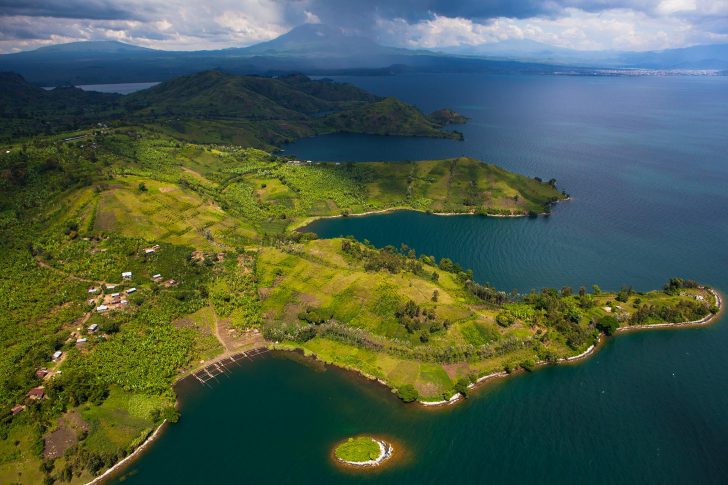
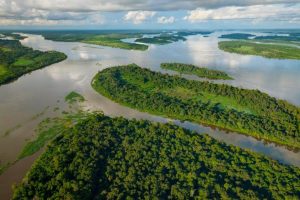
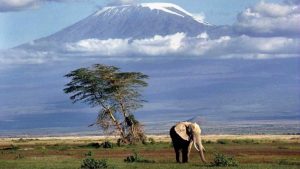
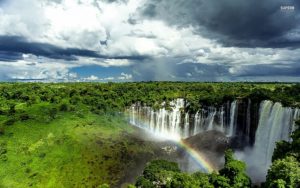
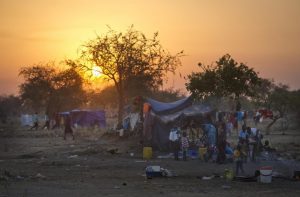







DO NOT TRAVEL
Not safe at all, DO NOT TRAVEL TO THE DRC. especially if your a women traveling solo or with someone else is not safe. its the rape capital of the world rape is the norm and its actually routine. women are raped excessively. almost all women in the drc have been raped at least once. and if your a man you still have to face the crime and terrorism. crime is off the wall in this country and police lack the resources to respond to them. Not to mention the Ebola outbreak and many other diseases DO NOT TRAVEL TO THE DEMOCRATIC REPUBLIC OF THE CONGO UNDER ANY CIRCUMSTANCES AS OF 2019
great place
pretty nice
went and the locals were very nice, can imagine it may be different in other areas however
So weird
Bad country
Fantastic place
I have been working in the DRC for the last 8 years and to be honest I have found it to be really safe. There appears to be no Covid, the police are actually surprisingly efficient. It is safe to travel to 95% of the country. It is extremely beautiful and the women are generally very ” friendly .” It does help to splash a couple of dollars at them to maitain their interest. I have never seen or heard gunfire, but have seen a pile of mutilated dead bodies up north. Apparently they were a gang of rapists, however local street justice prevailed and they are no more.
So to conclude, it’s beautiful, safe and cheap as chips.
Why go here?
Why would you go here? Unless you have someone who is already living here, I wouldn’t go. I was here just because I knew someone here but I wouldn’t go back. The country is beautiful indeed but it’s not safe at all, during the day or night.
DRC
I think if you stay on the safe sides you won’t be in any danger
DO NOT, I REPEAT, DO NOT TRAVEL TO THIS COUNTRY.
This is not the real axel bwanandeke, dont disrespect my country please and thanks.
It was ok and although I didn’t experience any crime personally other than a few dead bodies, I did not feel too safe and probably wouldn’t visit again.
10/10
these reviews are all so good
Idk
Why not.like this country? Every one who says don’t go there aren’t giving reason I’m gonna go to that doing cause my DNA is from the country and become footballer.at least give a reason!
It’s fine
Im from there and visited it’s not bad just depends where you stay i stayed at a hotel in Kinshasa it’s pretty good
Not as bad as it seems
Worked in DRC for 18 months, never experienced any crime and people were very friendly. Yes, there is violent crime which occurs but if you use common sense and avoid dangerous areas and situations you’re fine and this is coming from a white person who stands out